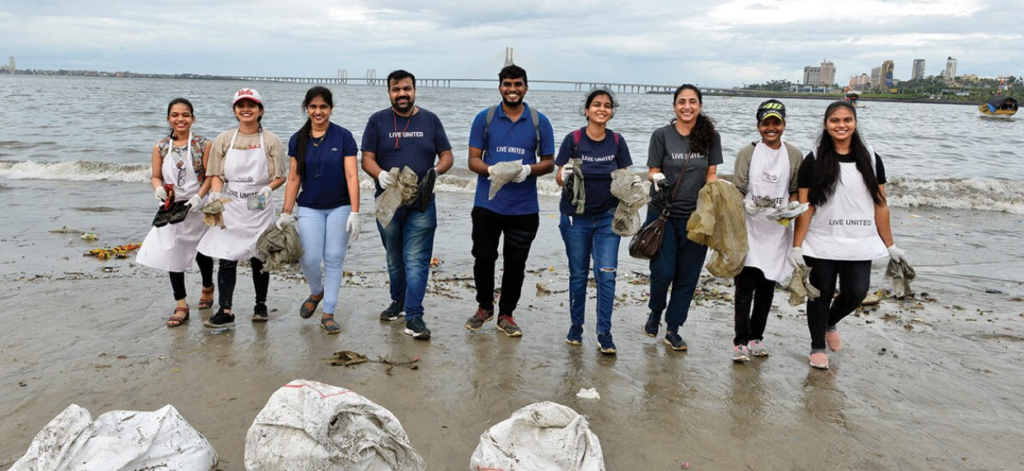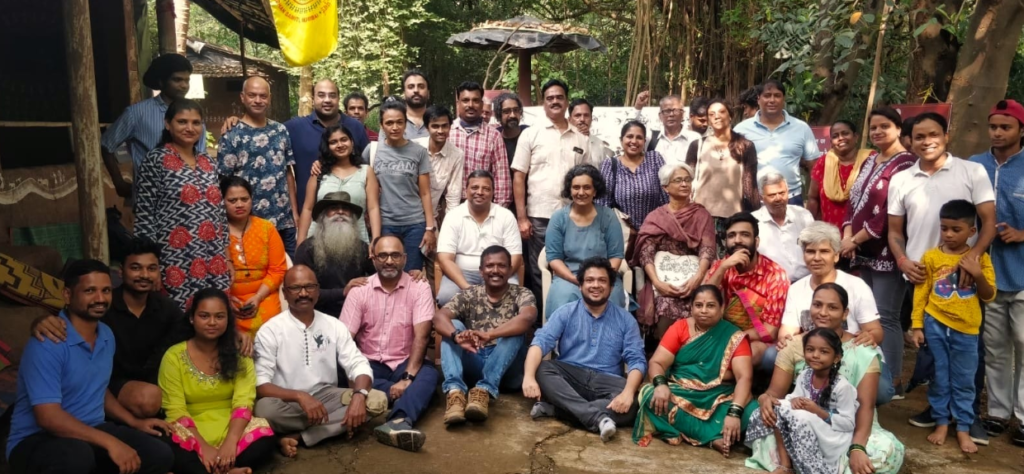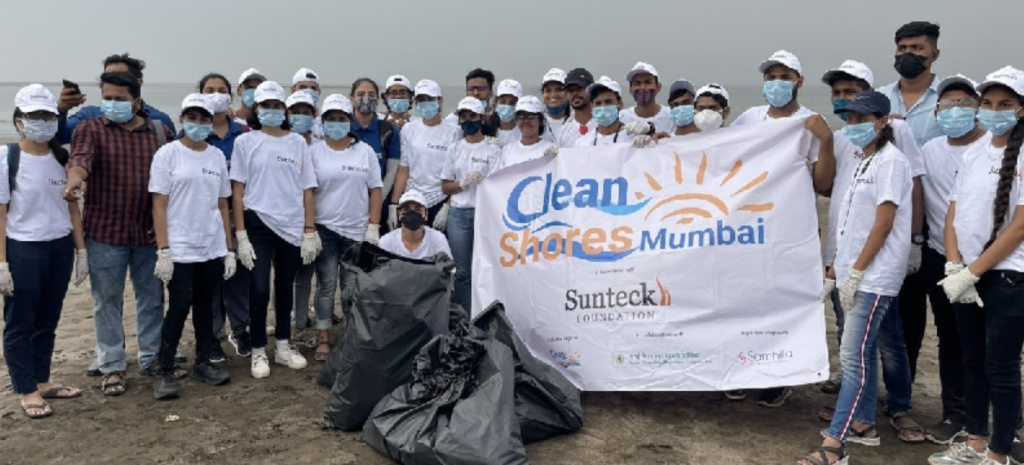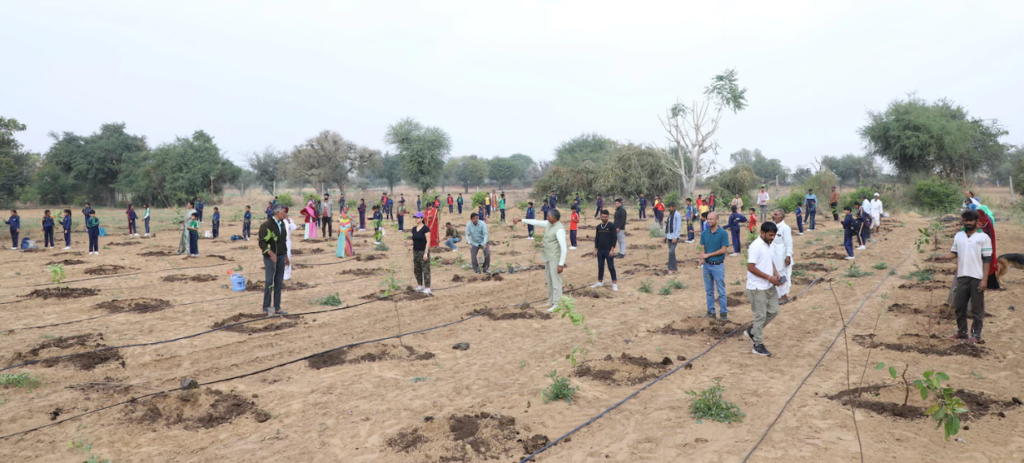Mumbai is an energetic city with a culture of never sleeping and economic dynamism, along with massive environmental issues. With this fast urbanisation, the natural resources of the town are under enormous pressure, and there is a crisis in air and water pollution, waste management, and loss of biodiversity. Reacting to these concerns, numerous environmental NGOs were outbursts aimed at developing sustainability and fighting against the protection of the environment.
This article aims to cover all the Environmental NGOs in Mumbai based on initiatives undertaken, challenges arising, and impacting the community or environment.
Environmental Problems in Mumbai
The environmental issues in Mumbai are:
- Air Pollution: The city always appears on the list of India’s most polluted cities; it is primarily a result of toxic exhaust from vehicles and fumes from construction activities, besides effluent from industries.
- Water Pollution: Water bodies like the Mithi River are highly contaminated with untreated sewage and industrial waste.
- Waste management: Over 10,000 tons of waste are produced each day, and the waste has not yet been appropriately handled.
- Green space loss: Urban expansion rapidly leads to a loss of forests and green spaces that contribute to biodiversity loss and air quality loss.
All this requires efforts on the part of stakeholders such as NGOs in areas of advocacy, education, and direct action.
Role of Environmental NGOs in Mumbai

The ecological concerns have been of great concern through the following activities by Environmental NGOs:
- Advocacy: Advocates for a change in policy locally and nationally so that sustainability practice is promoted.
- Education: NGOs conduct workshops and public awareness programs to educate people on environmental issues.
- Community involvement: Most NGOs involve the community in the conservation process and give them a sense of owning resources within their proximity.
- Research and Monitoring: They conduct scientific research to monitor environmental changes and assess the effects of human activities.
Prominent Environmental NGOs in Mumbai
Green Yatra

Overview: Green Yatra was established in 2008 to attempt to solve environmental problems through scientific research and engagement with the community. Green Yatra recognizes the critical need to spread awareness regarding ecological values and conservational practices for the creation of a sustainable world.
Key Initiatives:
- Tree Plantation Drives: Green Yatra has planted more than 140,000 saplings in various locations across India, including central urban forests in Navi Mumbai and Gr. Noida. Their aim is to plant half a million trees by mid-2023.
- Restoration of Water Body: They are concentrating efforts on the restoration of water bodies within the urban space to create better biodiversity and better local ecosystems.
- Awareness through Workshops and Activities: Green Yatra offers a set of workshops and acts of awareness for the community to familiarise themselves with environmental issues and sustainable practices.
Impact: Through its activities, it has developed a significant number of green cover areas in urban sectors and has further aroused the community’s interest in environmental conservation activities.
Website: https://www.greenyatra.org/
Vanashakti

Overview: Founded in 2006, the vision of the organization is the protection of the forest, wetland, and wildlife corridors of Mumbai. It believes that citizen action is fundamental for conservation works.
Key Initiatives:
- Legal Advocacy– For example, Vanashakti has filed Public Interest Litigations that have successfully halted the proposed expansion of roads that cut across several thousand trees.
- Environmental Education– They extend their education programs for schools and communities to enable these communities to understand conserving practices.
- Community Empowerment: Vanashakti collaborates with local communities through an advocacy for sustainable livelihoods based on forest resources.
Impact: The organization has been of immense importance in protecting natural ecosystems and educating urban dwellers about environmental concerns.
Website: https://vanashakti.org/
Earth5R

Overview: Earth5R is a citizen of UNESCO’s Green Citizen; it works on sustainable development, engaging the community in it. It focuses on its core mission to be followed by five Rs: Respect, Reduce, Reuse, Recycle, and Restore.
Key Initiatives:
- Solid Waste Management: Earth5R has designed community-based waste management initiatives that involve citizens in the recycling process.
- Urban Gardening Projects: It encourages urban gardening as a means to increase the green cover of the area while improving food security.
- Sustainable Livelihood Programs: The organization promotes local communities by imparting training and resources for the sustainable generation of income.
Impact: Earth5R’s initiatives promoted community participation toward sustainability while creating solutions to overcome the challenges posed by waste management in urban settings.
Website: https://earth5r.org/
Beach Please

Overview: Founded in 2017, Beach Please, a youth-oriented initiative aimed at cleansing the beaches in Mumbai, started with just some friends but today presents a mighty fight for the conservation of its coasts.
Key Initiatives:
- Regular Beach Clean-Up: Volunteers clean the regular beach, and they manage to collect around 360 tons of waste at different beaches across the region.
- Awareness Campaigns: Beach Please organise awareness campaigns to educate the public on marine conservation and the need for clean beaches.
Impact: It has not only cleaned up substantial portions of Mumbai’s coastline but has also raised local community awareness regarding marine pollution.
Website: https://www.instagram.com/beachpleaseindia/?hl=en
Aarey Conservation Group (ACG)

Overview: ACG is committed to saving Aarey Colony, a vital green area in Mumbai, by working together with different stakeholders. This campaign is inspired by Vinoba Bhave’s Chipko Movement.
Key Initiatives:
- Community Engagement Activities: ACG conducts events that promote Aarey as a recreational zone while advocating for its preservation against urban encroachment.
- Collaboration with Other NGOs: They work alongside organisations like Muse Foundation and Greenline to enhance their impact on conservation efforts.
Impact: ACG has successfully mobilised public support for the protection of Aarey Colony while promoting sustainable recreational activities for residents.
Website: https://www.instagram.com/aareyforest/
Clean Mumbai Foundation

Overview: The Clean Mumbai Foundation focuses on urban cleanliness and waste management. Their mission is to ensure that the city remains clean and environmentally friendly.
Key Initiatives:
- Waste Collection Initiatives: The foundation ensures timely garbage clearance across the city, aiming for efficient waste management.
- Public Awareness Campaigns: They educate the people on waste segregation and proper ways of disposing of it through workshops and outreach programs.
Impact: This has improved standards of cleanliness in Mumbai, thereby creating increased awareness among people concerning waste management methods.
Website: https://www.facebook.com/cleanmumbai/
Help Organisation for People, Environment and Society (HOPES)

Overview: HOPES focuses on raising awareness of environmental pollutants and making the environment safe by educating and involving the community.
Key Initiatives:
- Seminars and competitions on the environment: HOPES organises seminars, rallies, and competencies on issues of the environment to involve the community.
- Outreach Programs: They liaise with schools to adopt environmental education in the studies.
Impact: HOPES has reached out to thousands of people, taught them about environmental safety, and advocated for action to conserve the environment.
Website: http://www.hopesindia.org/
Grow Billion Trees Foundation

Overview: Established to plant one billion trees throughout India, the Grow Billion Trees Foundation aims to reforest urban landscapes in India toward climate change and even biodiversity richness.
Key Initiatives:
- Tree Plantation Campaigns: It organises large-scale planting events for trees across Mumbai, mobilising volunteers from all walks of life.
- Community Engagement: The foundation collaborates with local communities on adopting tree care education and sustainable practices.
Impact: The efforts by this foundation highly add to green coverage in the city while instigating people of the area for environmental conservation efforts.
Website: https://growbilliontrees.com
Challenges Faced by Environmental NGOs
Although these organizations are successful in bringing change, they also face some challenges:
- Shortage of Funding: Most organizations receive donations or grants from foundations or government agencies; irregular funding deters project implementation or forces a cut in programs when financial support dwindles.
- Government Restrictions: NGOs face bureaucratic red tape in the process of trying to initiate projects or push for policy reforms; lengthy approval processes can delay crucial initiatives that would benefit the urban environment.
- Public Indifference to Environmental Issues: Countering apathy towards pressing ecological issues is another challenge; many residents will put short-term economic interests ahead of long-term sustainability goals unless adequately educated on the consequences of neglecting these issues.
Evaluation of NGO Projects
The combined efforts of all these NGOs have added much to Mumbai’s environmental awareness. From education plans to community engagement and advocacy work, this has all created a culture of sustainability for citizens. Some significant impacts are as follows:
- Enhanced Involvement in Environment Activities: Many NGOs have effectively engaged the people in planting tree saplings, river cleaning, and waste segregation activities. Such a grass-roots level activity increases community cohesion, as well as allowing people to develop ownership over their surroundings.
- Better Public Awareness about Environmental Issues: NGOs have also educated residents on environmental issues, such as air pollution, plastic waste management, and habitat conservation, through workshops, seminars, and social media campaigns. This has led to an increase in the adoption of sustainable practices in daily life.
- Legal Gains for Environmental Protection: Several NGOs have won major legal battles that have resulted in better protection of natural habitats. For example, lawsuits filed by Vanashakti against illegal constructions have resulted in court orders mandating compliance with environmental regulations.
Future Prospects for Environmental NGOs
To increase the effectiveness of NGOs in an ever more complex and challenging socio-economic landscape that involves climate change impact globally, environmental NGOs can develop the following ways forward:
- Developing Organization Networking: Strategic networking with other NGOs will multiply the effect by combining a shared resource—such as shared funding opportunities with pooled expertise that spans sectors from education to advocacy.
- Increased Public Involvement: More engaging campaigns – like gamified challenges to inspire changes in eco-friendly behavior – might capture the interest of the public while connecting more profound actions by people with broader goals in society toward sustainability.
- Technology: Making use of technology, for example, through apps created especially for tracking one’s carbon footprint, can enhance project outcome and transparency, as well as data collection tools that can enable better assessments of effectiveness over time, eventually leading to more informed decision-making processes.
Environmental NGOs in Mumbai have been playing a crucial role in the fight against ecological degradation in Mumbai. Innovative projects and advocacy from community-oriented NGOs will not only provide solutions to the present but also set up a sustainable place in the long term.
As the city of Mumbai grows, environmental challenges keep rising, and the need for NGOs increases. Public support and encouragement to participate in such initiatives can work together toward an even more sustainable urban environment.
Summing up, environmental NGOs play an essential role in Mumbai and not only serve as nature’s voices but also as key partners in shaping a resilient future for the city and its dwellers.
Leave a Reply